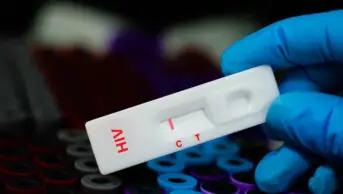Meldonium has sent shockwaves through the tennis world and beyond after tennis player Maria Sharapova hit the headlines after testing positive for the recently banned substance at the 2016 Australian Open.
Sold under the brand name Mildronate, meldonium is an anti-ischaemic drug developed at the Latvian Institute of Organic Synthesis and was designed to inhibit carnitine biosynthesis in order to prevent accumulation of cytotoxic intermediate products of fatty acid beta-oxidation in ischaemic tissues and to block this highly oxygen-consuming process.
The drug is used in patients for the treatment of myocardial ischaemia, with effects reported to include improved systolic function, inhibited hypertrophy and dilatation of the myocardium, improved peripheral blood circulation and increased stress tolerance. Consequently, use by athletes could potentially result in enhanced personal performance and a shorter recovery period after physical activity. Typical therapeutic oral and intravenous daily doses range from 500mg to 1g of meldonium.
Adverse effects reported by the manufacturers include headache, agitation, tachycardia, allergic skin reactions and dyspepsia. Little has been found in research with regard to serious adverse effects. With this seemingly safe clinical profile and with the possible effect of enhancing recovery time and performance, it is clear why the drug has attracted attention within elite sport.
Anecdotal evidence from previous sporting competitions suggested that meldonium was being used among athletes. This led to the World Anti-Doping Agency (WADA) to include meldonium on its monitoring programme for the duration of 2015.
Extensive monitoring was undertaken at the first European Games held in Baku, Azerbaijan, in June 2015. Three sources of data were reviewed by the European Olympic Committee Medical and Anti-Doping Commission. This was via self-reporting on doping control forms, laboratory detection and declaration of medical team stock.
Meldonium use was detected across athletes competing in 15 of the 21 (71.4%) sports staged during the games. The sample of 662 athletes tested represented a cross-selection of athletes from 46 of the 50 (92%) National Olympic Committees participating.
The laboratory findings of 66 positive results for meldonium out of 762 (8.7%) samples and the active surveillance undertaken by the European Olympic Committee Medical and Anti-Doping Commission shows there was widespread use of this drug by athletes competing at the Baku 2015 European Games. The findings suggest that such prevalent use among a healthy cohort may be for non-therapeutic uses.
Subsequently, meldonium has been included as a prohibited substance on the 2016 WADA Prohibited List. As of 1 January 2016, a therapeutic use exemption (TUE) for its use by a competing athlete must be applied for by their treating doctor, outlining the justification for the clinical use for legitimate medical treatment. This TUE must be approved by the relevant sporting federation or national anti-doping organisation before the athlete competes. A TUE would not usually be granted if a permitted alternative to the substance exists and can be used instead.
Since the news broke it has raised several issues: should there have been an awareness campaign for athletes using the drug? Also, should authorities do more to educate athletes and team officials around anti-doping substances?
Sharapova admitted she has been taking the drug for the past ten years as prescribed by a family doctor for “several health issues” she suffered in 2006. It has since emerged that the International Tennis Federation (ITF), as well as the Women’s Tennis Association, warned players five times during December 2015 about the impending ban. Sharapova has in her own statement taken full responsibility for her actions, and questions will be asked: was she aware of the impending ban? Did she take meldonium continuously for the past decade, when therapeutic use is for short courses of weeks rather than years? She faces an anxious wait and WADA will only comment after a decision has been issued by the ITF. Following that, WADA will review the reasons for the decision and subsequently decide whether or not to use its independent right of appeal to the Court of Arbitration for Sport. If Sharapova is found guilty, it could mean a ban of up to four years for the athlete.
Jaz Dhillon
Wolverhampton
(Jaz Dhillon is a pharmacist who worked at the London 2012 Olympic Games, Baku 2015 European Games and UK Anti-Doping)


